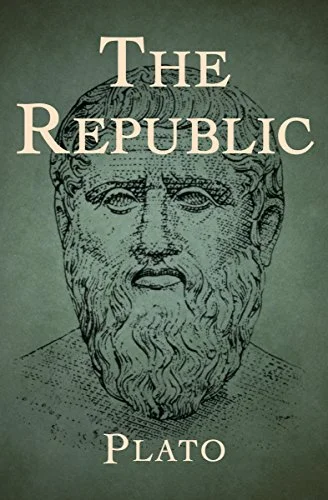~YASHIKA SEHGAL
INTRODUCTION
Plato was born in Athens in 428 B.C. in an aristocratic family. He was and still is widely recognised as a great writer all over the world. Plato’s Republic is one of his longest and greatest books. This book has no age boundaries and contains thoughts not only for one age group but for all.
In brief, the plot goes as : Socrates and Plato’s brother, Glaucon, are travelling home from a festival where they meet another brother of Plato, named Adeimantus, who was also travelling with a rich Athenian named Polemarchus.
Polemarchus invites everyone to his home where they meet his father, Cephalus.
As the conversation begins, they tend to discuss the meaning and idea of justice. Thrasymachus uses an empirically informed method and argues that justice is the interest of the rulers. Glaucon and Adeimantus appeal to a contractarian method of investigation and conclude that justice emerges from an agreement between parties and not to harm one another. A major focus is on Plato’s and Socrates’ idea of justice. Plato basically aims to describe justice in such a way to show that justice is worth the time, money and effort spent in attaining it. He wants to describe it according to man’s psychology and not social presumptions.
IDEA OF JUSTICE
There is a vivid description of political, societal as well as individual justice and how all 3 of them are intertwined in this book. According to Plato, the society, as well as every individual who is part of the society, has 3 parts.
He showcases that an ideal society consists of producers, rulers and warriors. Justice according to him is a principle in which every individual needs to perform his societal role for the proper functioning of all lives. Every individual has 3 parts- the rational part which seeks truth, the spirited part which is responsible for our feelings and the appetitive part which includes lust, especially for the money. It would not be incorrect to say that the other two parts of the body work towards fulfilling the desires of the rational part of the body. All individuals have their own perception about justice and what makes them happy and their idea of living a good life. The ideals of a just society and a just individual go hand in hand. Just individuals help to make a just society. Here he writes his theory of “forms”. He says that the world has 2 realms- the visible i.e. what we can see and touch with our 5 senses and the intelligible i.e abstract forms such as goodness which cannot be seen but only be felt. These abstract forms are sources of knowledge as they contain eternal truth. Plato paints a very respectable image of the philosophers by saying that they are the only class of men who can grasp these abstract forms of good and possess the knowledge and so everybody should accept their judgements and do as they say.
CONCLUSION
He concludes his book by criticizing the poets in the society and calling them unjust as they encourage people to have sympathy towards the characters that they write about in their literary works and finally including these emotions in their real life. He says that a just person’s soul after death is rewarded for 1000 years and an unjust person’s soul is punished for the same amount of time. He basically wants to establish a relationship between justice and happiness.
I firmly believe that Plato’s idea of a just society is still relevant in today’s world. A person who is able to attain justice is always happier than a person who is unable to attain it. Hence these two aspects are directly proportional to each other. However, I do believe that justice as a virtue can also be personal. The perception of justice can be different for different people. What might be justice for one person might not be justified according to some other person.
Must read:https://skchildrenfoundation.org/diary-of-a-wimpy-kid-the-deep-end/





